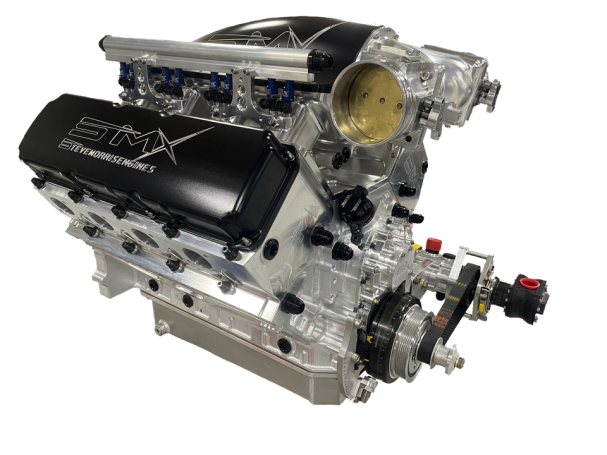The Influence of Cutting-edge Engine Technologies on Energy Effectiveness and Environmental Sustainability
In the realm of transport and commercial machinery, the continuous quest for improved energy effectiveness and decreased environmental impact has actually led to substantial improvements in engine modern technologies. From the steady change towards electric and hybrid systems to the assimilation of turbocharging for improved effectiveness, the landscape of engines is advancing swiftly. The use of alternate fuels better diversifies the options readily available for lasting energy sources. These advancements not only promise a greener future but likewise hold the potential to reinvent the way we come close to energy consumption and ecological sustainability.
Development of Engine Technologies
The development of engine innovations over the years has actually been marked by consistent technology and improvement in pursuit of boosted performance and performance. From the early days of internal burning engines to the sophisticated hybrid and electrical powertrains of today, the evolution of engine modern technologies has been driven by a relentless pursuit for boosted fuel effectiveness and lowered discharges.
One substantial turning point in this advancement was the advancement of turbocharging and straight shot systems, which significantly increased engine power output while enhancing gas effectiveness. These innovations permitted smaller, much more light-weight engines that could provide the efficiency of larger ones without compromising on efficiency.
In addition, improvements in materials scientific research have actually led to the extensive fostering of light-weight materials such as light weight aluminum and carbon fiber in engine building. This has not only lowered general automobile weight however has actually additionally improved engine performance by decreasing power losses connected with inertia and friction.
Benefits of Electric and Crossbreed Systems
With the expanding concentrate on sustainability and power efficiency, what advantages do hybrid and electric systems use in the realm of engine innovations? Electric and hybrid systems present many advantages that add to a much more energy-efficient and lasting future. Among the primary advantages is the considerable reduction in greenhouse gas emissions contrasted to typical interior burning engines. Electric cars generate absolutely no tailpipe emissions, leading to enhanced air high quality and decreased ecological effect. In addition, hybrid and electric systems are extra energy-efficient, converting a greater percent of stored energy into propulsion compared to traditional engines. This efficiency leads to reduced power intake and operating expense over the lorry's life time. Electric automobiles use regenerative stopping systems that catch and store energy typically lost during stopping, further enhancing energy effectiveness (engines for africa). Hybrid systems combine the benefits of electric propulsion with the versatility of a burning engine, giving extended driving arrays and minimizing variety stress and anxiety for customers transitioning to electric vehicles. Generally, electric and hybrid systems play a vital function beforehand energy performance and ecological sustainability in the transport sector.
Turbocharging for Improved Effectiveness
Turbocharging works by making use of a turbine to compel more air right into the burning chamber, permitting for far better fuel combustion and boosted power output without a considerable boost in engine dimension. By maximizing the effectiveness of the burning process, turbocharged engines can attain improved gas economic climate and minimized exhausts, contributing to ecological sustainability. The widespread fostering of turbocharged engines in both gas and diesel cars demonstrates this post their efficiency in balancing efficiency, performance, and ecological influence.
Using Alternate Fuels
Taking advantage of alternate fuels offers a promising opportunity for reducing carbon exhausts and expanding the power sources used in transportation. As the world makes every effort to battle environment modification and lower dependency on fossil fuels, alternative gas have acquired significant focus for their prospective environmental and economic advantages.
Biofuels, such as ethanol and biodiesel, are obtained from sustainable sources like corn, algae, and sugarcane, offering a cleaner burning alternative to standard gasoline and diesel. These gas can be mixed with existing oil fuels or used in specialized engines, giving a path to lower greenhouse gas emissions and enhance air quality.
Furthermore, hydrogen fuel cells have become an encouraging modern i was reading this technology for zero-emission transportation. engines for africa. By converting hydrogen gas right into power to power electric motors, fuel cell automobiles create only water vapor as a byproduct, removing hazardous tailpipe emissions entirely
Along with minimizing carbon emissions, different fuels can likewise boost energy safety by diversifying the fuel mix and lowering reliance on imported oil. Welcoming alternate fuels in transport is a critical action in the direction of achieving a much more lasting and eco-friendly future.

Ecological Advantages and Future Potential customers
The environmental advantages of different fuels and their capacity for long-term sustainability are key considerations in the transition towards cleaner energy sources. Alternative fuels, such as biofuels, hydrogen, and electrical energy, offer significant environmental benefits compared to standard fossil gas. These gas produce lower levels of greenhouse gas emissions, lowering air pollution and mitigating climate adjustment impacts. In addition, alternative gas can assist branch out energy sources, enhancing power protection and reducing dependence on finite resources.
The future potential customers for alternative fuels in the transportation field are appealing. Improvements in technology remain to improve the efficiency and price of alternate gas cars, making them much more accessible to customers. Governments around the world are additionally executing policies to incentivize the adoption of different gas, even more driving their growth. As r & browse around this web-site d initiatives expand, the capacity for even greener and much more lasting fuel options raises, leading the way for a cleaner and more eco-friendly transportation field. By welcoming ingenious technologies and alternative fuels, the course towards an extra lasting future ends up being progressively possible.

Conclusion
Finally, cutting-edge engine technologies have actually played an essential duty in improving energy efficiency and advertising environmental sustainability. engines for africa. The development of engine innovations, adoption of electric and hybrid systems, utilization of turbocharging, and exploration of alternative fuels have all added to raising and reducing emissions effectiveness. The ecological benefits of these advancements are clear, and there is terrific potential for further development in the future. Engine technologies proceed to be a vital location of focus for accomplishing a more sustainable future.
In the realm of transport and industrial machinery, the constant quest for enhanced power effectiveness and lowered ecological influence has led to substantial improvements in engine modern technologies. Turbocharging jobs by using a turbine to require more air into the burning chamber, permitting for better gas burning and increased power outcome without a significant boost in engine size. By taking full advantage of the effectiveness of the burning procedure, turbocharged engines can accomplish improved gas economy and decreased exhausts, contributing to ecological sustainability. Alternative gas, such as biofuels, hydrogen, and power, offer significant ecological benefits compared to typical fossil fuels. The evolution of engine modern technologies, fostering of hybrid and electric systems, use of turbocharging, and exploration of alternative gas have all contributed to increasing and decreasing exhausts efficiency.